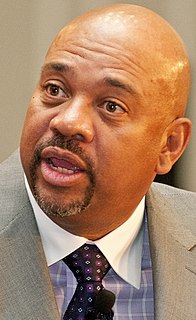A Quote by Lionel Barber
All our reporters and editors now work seamlessly in print and online. This integration has transformed the way we work. I believe this is vital to the success and growth of newspapers.
Related Quotes
[The web] is going to end up being a tremendous advantage, providing we can work out the financial structure. I think we’ll see newspapers survive, being printed at home... Or you’ll have a local print shop, so that rather than waiting for the newspapers to arrive by truck, which is 30 percent at least of a newspaper’s cost, you’ll go in and push a button, and it will take your dollar bills without anyone having to be there. And it will print the newspaper for you while you wait. It will take seven minutes. There’s a terrific future for print in my view and it gives me great heart.
Distinguish between the work and the job title. When I was leaving school in the early 1970s, many people wanted to be journalists, carrying out investigative reporting for print newspapers. Print newspapers may not exist in twenty years. But good thinking and good writing about issues that need to be reported and investigated will always be needed; but where this happens, what it is called, and who pays for it may be quite different than could have been envisioned by the great journalists of the past.
Growth works. What we're doing in the administration to spur growth in terms of regulatory form work. And what we're working is to make sure that those tax cuts add to that. We do believe that sustained 3 percent economic growth is possible and that that is the way you can balance the budget long-term.
In a print interview, as you may or may not know, they [editors] can do whatever they want. And they do. This is why most people are more hesitant to do print, because they can change it, and they do change it. They even change things that are in quotation marks, which is a pet peeve of mine. I've said to numerous reporters, "Would you read me back my direct quotes?" And they always say no. They always say that's against the policy.
I think what you have to do in print is to create even more memorable images and more memorable pieces because what one consumes online or in social has a much shorter shelf life, so to speak, so what print has to have is no more weight, but it has to be something that you can't find so easily online. It has to really stand for print.
Chats are so new to newspapers, historically. But they're so incredibly valuable because editors/reporters/columnists get to find out what's on the minds of our readers, what you think we should be writing about, what ticks you off, what makes you happy. Sometimes it can confirm what you think readers are interested in; sometimes it can turn you around 180 degrees.
































